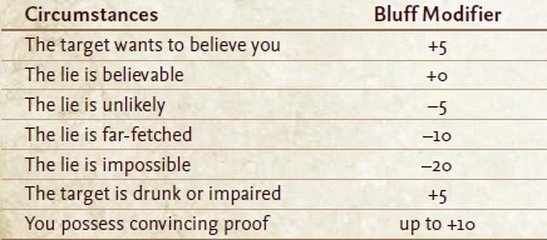 When I started my foray into the world of pen, paper, and imagination, I was in High School, and could have never predicted that playing tabletop games as a hobby (and later a passion) would outlast my varied collection of other interests. There are skills that I have honed over the last ten or so years that have helped me study in school, work more efficiently at jobs, and resolve minor conflicts among friends. 1. Conflict Resolution - D&D has taught me that there’s always more than one way to solve an encounter. Whether it’s a Dragon protecting its Horde, a room full of traps about to obliterate the PC’s, a band of Orcs demanding ransom for a Princess, or the BBEG (Big Bad Evil Guy) on an altar, about to sacrifice a poor soul in order to summon a Devil. Sure, you can hack, slash, or shoot your way through all of those scenarios, but a craft Rogue can sneak ahead and determine the largest threats, a Bard can woo or convert an aggressive creature into a possible ally through Charm and wit, and the Cleric/Paladin/Monk can pray/meditate upon what the future holds to determine the best course of action. Every Player, every Class has its strengths and strategies. Away from the table, the ability to see friends for their potential strengths, and their attributes, can help to quell minor qualms, and know the best course of action. I’ve learned how to “size up” a potential situation or encounter, and it has paid out in spades. 2. Creative Writing Skills - My favorite part of the character creation process for a new game is crafting the individual, the person who will fit into this new world and new adventure. Beyond the character sheet, I’ll write a backstory for my character, giving them a home, a family, a history, and a reason for the DM, the party, and myself to invest in the well-being of this new addition to the team. I’ve created some odd characters, pushing my creative boundaries, generating against type characters, and learning how my brain operates when taking on a new role, and how to successfully adapt at the table. 3. Meta Knowledge = Confidentiality - Having worked in a few jobs where confidentiality is of utmost importance (Human Resources paperwork, following FERPA laws for students, etc), I’ve had an easier time learning where the line between meta and table knowledge meet. While I may be privy to something that the DM (my boss) has told me, other players (co-workers) haven’t come across that story point (fact) yet, and it’s up to the DM to divulge it at the right time and place. Gamifying work as a whole makes the entire day go by faster, and makes tasks less tedious - just another step on the questline. 4. Alignment Axis: A lesson in Philosophy - Inevitably, when you have more than one human in a room, you will have more than one viewpoint and philosophy. Learning how to step into another person’s shoes and seeing through their eyes benefits… everything. I’m having a hard time thinking of a situation where you wouldn’t want to understand both sides of a conversation, argument, or debate. Political, religious, spiritual, ethical, scientific… all of these topics benefit from a moment of passivity, observation, and understanding. I view it as a sort of challenge when the debaters in question all have the in-game capability to kill one another, because this challenges the players on their and their character’s convictions; how long can a direct conflict to a character’s worldview last before being quashed? Is there a resolution beyond violence? Also, it certainly helps to generate great inter-character conversations, like a zealous Paladin talking to a whimsical Druid and a cynical Rogue. These kinds of discussions can spur a new type of party growth, beyond XP and encounters. Not only is there party growth, but you also can find a new appreciation for your friends around the table and their viewpoints on the world. 5. A Comfortable Space to Practice Confidence - By the nature of the hobby, tabletop games bring friends and like-minded people together into a safe environment to try new techniques of conflict resolution and immersion into a new role. Beyond the confines of the rulebook and character sheet, there is a world of freedom to be found in a comfortable setting. My public speaking skills have benefited from my hours around the table; I have a friend who does voice acting, and uses new characters as a test bed for accents, pitch changes, and vocal range. Beyond the practice for improvisational humor and reactions, as well as the grounds for many an inside joke for future storytelling, I can think of no better place to freely express oneself and speak openly and confidently without reproach. Tabletop games, and D&D in particular, have taught me more about myself than I could have learned from any other hobby. Further, this ‘hobby’ has become a lifestyle, and has helped to challenge, change, and mold my analytical skills, problem solving, and communication with the world at large. Also, I can be a cat person. Angela Daurio is a DM and player of D&D 5e, is eagerly looking forward to Pugmire, and enjoys board games on a weekly basis. She resides in New Jersey, where she and her fiance are currently playing in two campaigns, and plotting the return of their own campaigns. Leave a Reply. |
All blog materials created and developed by the staff here at High Level Games Archives
April 2023
Categories
All
|
Proudly powered by Weebly



 RSS Feed
RSS Feed